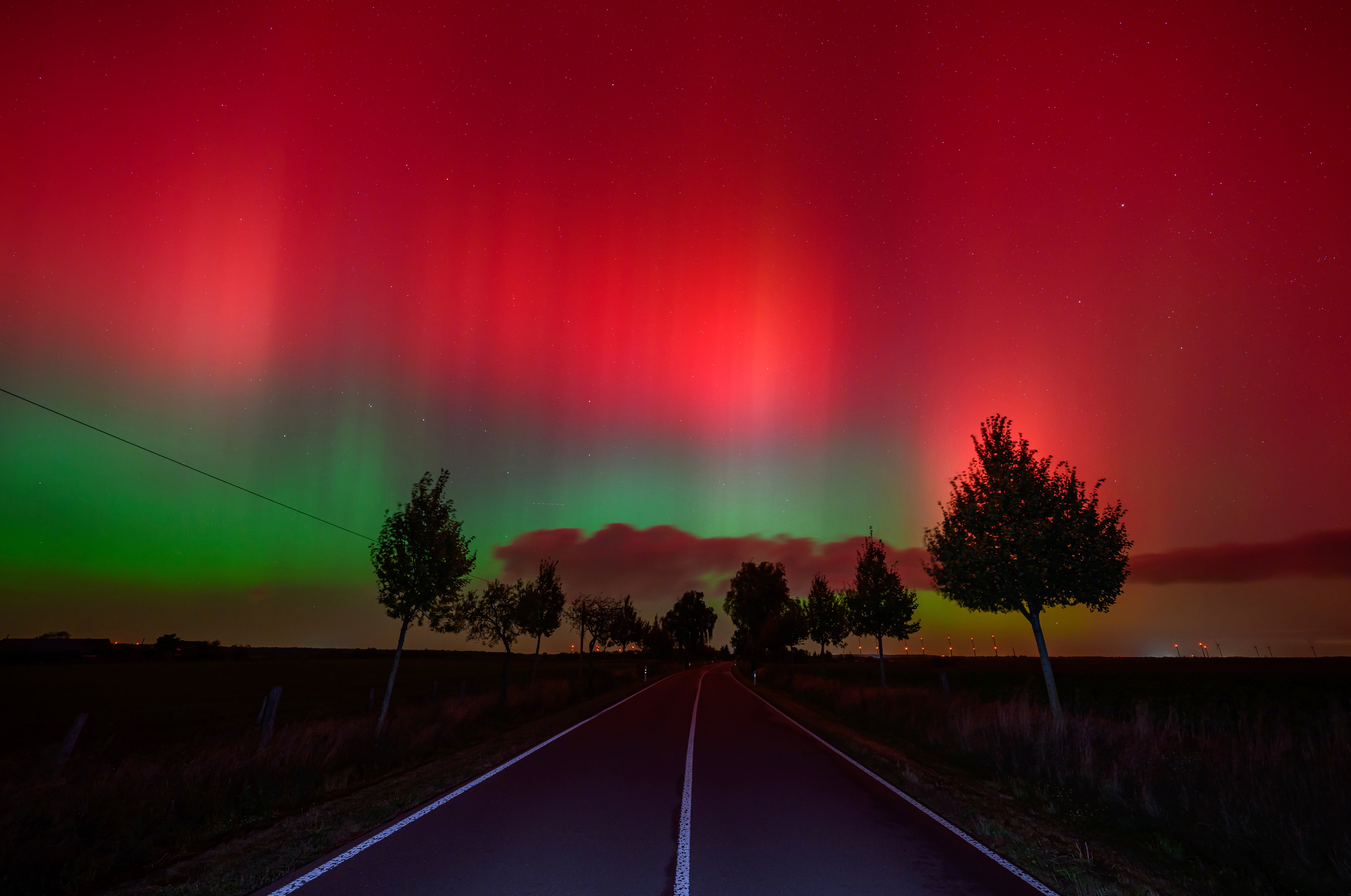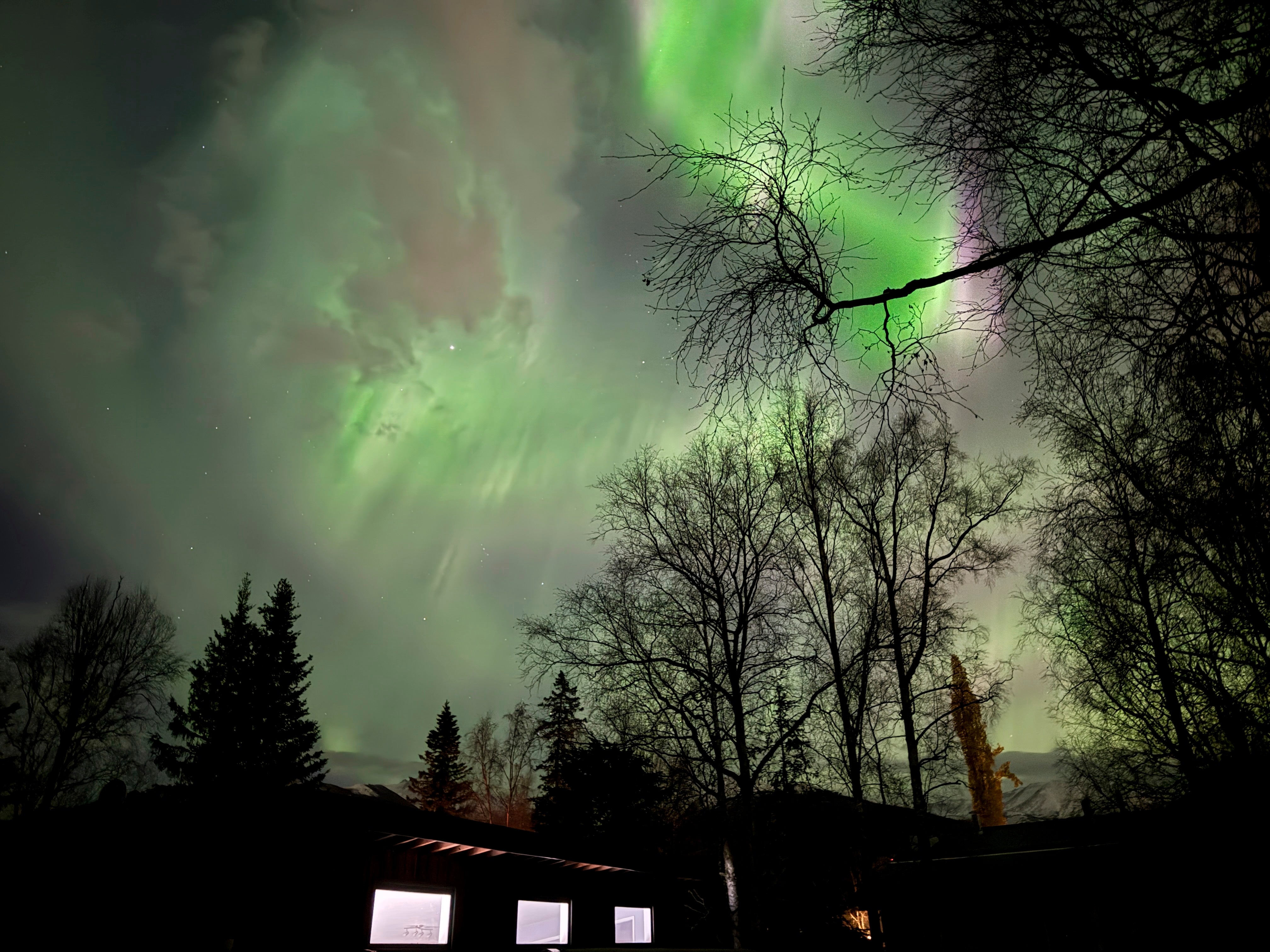Missed out on the northern lights? Scientists say you shouldn’t worry
The sun is currently at the maximum phase of its 11-year cycle

The world can expect to see the northern lights in unusual places as the sun continues to sizzle, space weather forecasters have said.
Strong solar storms this year have triggered shimmering auroras much farther south than usual, filling skies with hues of pink, purple, green and blue.
The sun is currently at the maximum phase of its 11-year cycle, making solar surges and northern lights more frequent.
During its active bursts, also known as solar maximum, the sun releases charged particles that travel through space at speeds of around one million miles per hour. According to Nasa, oxygen emits either a greenish-yellow light – which is the most familiar colour of the aurora – or a red light, while nitrogen generally gives off a blue light.
The oxygen and nitrogen molecules also emit ultraviolet light, which can only be detected by special cameras on satellites.
Some of the particles are captured by the Earth’s magnetic field and collide with oxygen and nitrogen atoms and molecules in the atmosphere.
This active period was expected to last for at least another year, though when solar activity will peak won't be known until months after the fact, according to NASA and the U.S. National Oceanic and Atmospheric Administration.

This solar cycle has yielded more colorful auroras farther south and more are likely in the coming months, said NASA's Kelly Korreck.
Such storms can also temporarily disrupt power and communications. Ahead of a solar outburst, NOAA would alert operators of power plants and spacecraft in orbit.
In May, NOAA issued a rare severe geomagnetic storm warning. The storm that slammed Earth was the strongest in more than two decades, producing light displays across the Northern Hemisphere. That same month, scientists recorded the biggest flare erupting from the sun, but Earth was out of the way.
Last week, a powerful solar storm dazzled skygazers far from the Arctic Circle when auroras appeared in unexpected places including Germany, the United Kingdom, New England and New York City.

“We’re firmly within solar maximum which as the name suggests, is when the Sun is at its most active during its 11-year solar cycle,” explains astronomer and astrophotographer Matt Robinson from The Aurora Zone, an operator typically selling northern lights holidays in the Nordics.
“During solar maximum, the sun releases a higher frequency of solar flares which launch out dense eruptions of charged solar particles into space. The stronger the storm, the further south in the northern hemisphere the aurora borealis is visible. This is why the northern lights have been spotted multiple times in the UK within the last 12 months, and this should continue into 2025.”
Bookmark popover
Removed from bookmarks